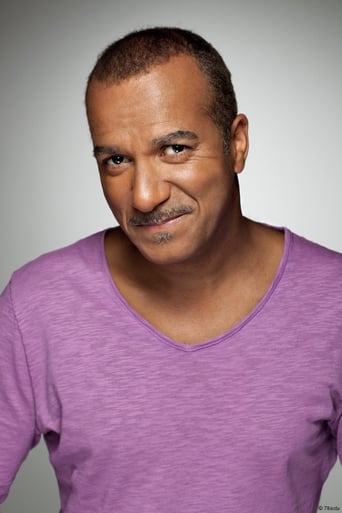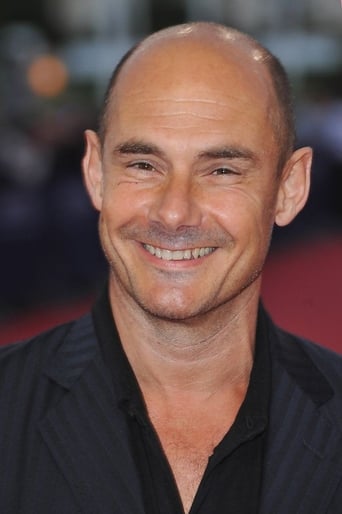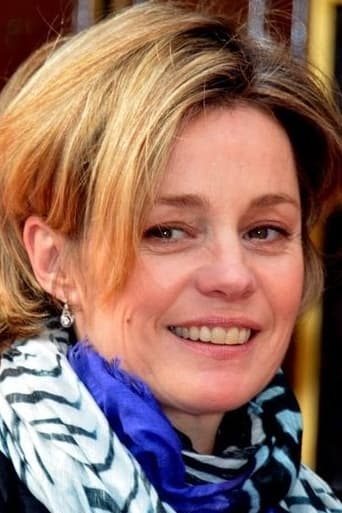leplatypus
In France, we have a tradition of humorists doing plays, shows, TV and then doing movies. A lot of times, they are less funny in the big screen so this movie is rather an exception. Here the band is called « the not known » (already a pun) and their movie is a great comedy and beyond a tremendous depiction of France and French people : for one time, the action takes place in Paris and in the country ! Their characters comes from different worlds and they interact with more diverse people. With all this, we can see this that France is not the peaceful paradise politics want it to be : french can be racists, blind to poverty or quick to denounce. On the other hand, the common people is cut from law and justice : it's a field for experts and nobody understands it. So that's the big paradox of this movie : under the laughs, it's an acid attack and everybody likes it ! But it's also a great film about familial values and has some great moving moments ! Twenty years later, they have a sequel : as the country has getting worst, it's should be interesting to see it and i hope they follow up the stories with the child and the lone mother they started here.
ElMaruecan82
In the late 80's and early 90's, 'Les Nuls' and 'Les Inconnus' (literally "the nobodies" and "the unknowns") were the 'Rolling Stones' and 'Beatles' of French comedy.'Les Nuls' were a product of the Canal + generation, , mostly relying on absurd and Pythonesque humor while 'Les Inconnus' were more satirical, depicting French society with a humor easily labeled today as politically incorrect (like a parody of "The Invaders" where the aliens were Arabs). The popularity of the two trios culminated with the release of their respective movies: in 1994, "The City of Fear" by 'Les Nuls', a parody of crime thrillers with the Cannes Festival as a backdrop and in 1995, "The Three Brothers", a more mature comedy about three men in a crisis-stricken France."The Three Brothers" was faithful to the usual tone of the group and rather than a succession of gags, it relied on a solid script and heart-warming story that ensured the film's success (it was the highest-grossing French film of the year). The film isn't a laugh-riot and has its slower moments but there is a heart inside, an evolution of characters, and some powerful messages about values like family and brotherhood. Didier Bourdon, Bernard Campan and Pascal Légitimus play characters of the same name who couldn't have been more different and it's precisely their different backgrounds that make their interactions so hilarious, while the heart of the film relies on their common denominator: a mother.Didier is a security guard in a clothes store and a womanizer living with a traditionalist family; because he has no other alternative, he endures both their bigotry and pressure to marry their prude and dull daughter. Bernard is a half-time detergent-demonstrator and 'arts film' actor, the closest to the definition of a loser. Finally, Pascal is the most successful one, he's your typical yuppie who works in a Marketing agency where everyone wears ponytails to imitate the boss, the confident and towering Mr Steven (Berndard Farcy) although he likes to be called Steven since he doesn't believe in bossing, which doesn't prevent him for firing when necessary, using convincing metaphors to justify it.The diversity of their background is not just used in the set-up but establishes their personalities with a real depth. Bernard is the gentle bum, displaying the same kindness he probably used to depend on. Didier is unconsciously affected by the racism of his host. Pascal, the self-made man, treats people with an arrogance proportional to his boot-licking at work. The three men often express xenophobic or racist remarks, but this is only a facade to hide their own insecurities. Today, one of the three men would have been gay and another a struggling artist, Bernard, Didier and Pascal are respectively, worker, unemployed, salaried like only "Les Inconnus" could have portrayed, average men expressing average ideas, a credit to the realism of the screenplay.The trio first meets in an attorney office where they learn that their mother passed away two years ago, and left a significant fortune of three million francs, for each one million, translated into the film's catchphrase "cent patates" ("10 racks"). The money doesn't unite them anyway, each one decides to take a different path, Bernard buys himself a 1957 Chrysler, Didier, who met an old girlfriend decides to take her to a trip and Pascal brags on having won money through speculation. The story really picks up in one of the film's funniest scenes, when the poor attorney must explain that the heritage can't transpire because of a technical problem regarding the delay. The film echoes one of the group's most famous sketches about professional jargon (hermetical languages) but the comedy works because the three men still think of the money and their evolution from disbelief to sheer anger is simply brilliant.The incident leads to a chain of events that would cause their downfall, Didier drinks so heavily he's immediately chased away from his family; Bernard helps him to recover after an acid trip. And Pascal, who earlier took pride of being the only one who remained stoic, pays the highest price of his cockiness during a friendly dinner at home, with Steven, his wife and a subordinate, a dinner that must conclude with Pascal's acceptance to invest his money on the company. The film reaches its pinnacle when two drunk Bernard and Didier go to Pascal's home and ruin the pleasant evening. The film never gets funnier after that, but the peak of hilarity is so high we forgive them. Didier returns to his ex' home and find her son alone in the stairs, the son is six-years old, coincidentally, the same span of time since their breakup, and then, the film turns into a "Three Men with a baby" remake, but with many funny situations to come, despite some syrupy moments.The film is one of the most quotable of French cinema, although many gags would be lost in translation, nonetheless no one can't resist to some props that became part of French pop-culture, from the misunderstood modern sculpture everyone takes for a coat rack, or the famous Whiteman's monochrome, a white painting that has no price. "The Three Brothers" is French popular cinema at its best, and even the most serious and intellectual magazines praised the relative solidity of the story, probably satisfied that the film didn't fall in an abundance of grimaces or noisy jokes that became too common in French comedy.The film won a César for Best First Work, while the screenplay and Didier Bourdon's acting also deserved some nods. It's a great comedy the kid is so cute and believable he almost steals the show, and if the script gets a bit preachy near the end, it's immediately redeemed by some hilarious gags.(On a last note, I'm sure the same film made today would have benefited from the same buzz and Internet campaign that ensured weaker comedies to break new records)
dbdumonteil
It's the "Inconnus"'s first movie for the screen and they made a funny and entertaining comedy. But it's not sufficient to consider it as a masterpiece. Three men who are very different are discovering that they are brothers. They 're also discovering that they're going to inherit a fortune that used to belong to their mother. But the inheritance is cancelled and they must escape from the police, the notaries, the bailiffs. Now that they are in the street, they've got to beg for but at the same time, they're learning to know each other better.... The film won the Oscar for the First Best film in 1996 but did it really deserve it? The "Inconnus"'s performance is quite convincing and each of their character's personnality is well portrayed. It's a pity that they often ham it up. The screenplay is a bit of a mess and I am under the impression that it's a pretext for a succession of sketches where they are talking about leading subjects nowadays: unemployement, immigration etc.... Due to a big number of these sketches, the film never seem to end. Moreover, the secondary and minors actors are bad used. On one hand, they are left to themselves, like the notary; on the other hand, they're falling into the caricature like Rougemont who is the man who puts Didier Latour up, or the racist bailiff. I also noticed that most of the actors were talking very fastly and so it was difficult to understand them. Nevertheless, the film is often funny thanks to the dialogues and the comical situations but they aren't deprived of vulgarity. To sum up: a film which could have been better if it had been more controled.





